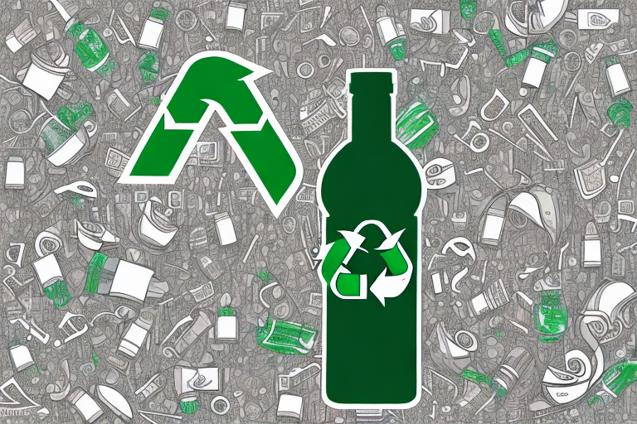
Discover the urgent need to reduce plastic waste and combat climate change as sailors and adventurers.
The Importance of Reducing Plastic Waste to Combat Climate Change
As sailors and adventurers, we have a unique connection to the ocean and the environment. We witness firsthand the beauty of the open sea, as well as the devastating impact of pollution and climate change on our planet. One of the most pressing environmental issues we face today is plastic waste, which not only threatens marine life but also contributes to climate change. In this article, we will explore the connection between plastic waste and climate change, and discuss the importance of reducing our plastic consumption to protect our oceans and our planet.
The Plastic Problem
Plastic has become an integral part of our daily lives, from food packaging to consumer products. However, the convenience of plastic comes at a high environmental cost. It is estimated that around 8 million metric tons of plastic waste enter the oceans each year, causing harm to marine life and ecosystems. Moreover, plastic production and disposal contribute to greenhouse gas emissions, exacerbating climate change.
How Plastic Waste Affects Marine Life
Plastic waste in the ocean poses a significant threat to marine life. Animals can become entangled in plastic debris, leading to injury or death. Additionally, many marine species mistake plastic for food, ingesting it and suffering from malnutrition, poisoning, or internal injuries. This not only affects individual animals but can also disrupt entire food chains and ecosystems.
Microplastics, tiny particles of plastic less than 5mm in size, are particularly concerning. They can be ingested by even the smallest marine organisms, such as plankton, and accumulate in the food chain. This can lead to the contamination of seafood consumed by humans, posing potential health risks.
The Connection Between Plastic Waste and Climate Change
The production, use, and disposal of plastic all contribute to greenhouse gas emissions, which drive climate change. The majority of plastics are made from fossil fuels, such as oil and natural gas, which release carbon dioxide when extracted and processed. Furthermore, the energy-intensive manufacturing process of plastic products generates additional emissions.
When plastic waste ends up in landfills or the environment, it can release methane, a potent greenhouse gas, as it degrades. In the case of plastic waste in the ocean, the breakdown of plastic can also release carbon dioxide, further contributing to climate change.
Moreover, plastic pollution can exacerbate the impacts of climate change on marine ecosystems. For example, plastic debris can smother coral reefs, making them more susceptible to bleaching events caused by rising ocean temperatures.
Reducing Plastic Waste: What Can We Do?
As sailors and ocean lovers, we have a responsibility to protect our marine environment and combat climate change. Reducing our plastic consumption is a crucial step in this process. Here are some practical actions we can take to minimize our plastic footprint:
1. Choose Reusable Products
One of the most effective ways to reduce plastic waste is to replace single-use plastic items with reusable alternatives. For example:
- Use reusable water bottles and coffee cups instead of disposable ones.
- Bring your own shopping bags to the store, rather than relying on plastic bags.
- Opt for reusable food containers and utensils, rather than disposable plastic ones.
2. Avoid Unnecessary Packaging
When shopping, try to choose products with minimal or no plastic packaging. For example:
- Buy fresh produce without plastic wrapping, or opt for loose items rather than pre-packaged ones.
- Choose products in recyclable packaging, such as glass or cardboard, over plastic.
- Support businesses that prioritize sustainable packaging and waste reduction.
3. Recycle Responsibly
While recycling is not a perfect solution, it can help to reduce the amount of plastic waste that ends up in landfills and the environment. Make sure to:
- Familiarize yourself with your local recycling guidelines, as they can vary between regions.
- Clean and sort your recyclables properly to ensure they can be processed effectively.
- Consider participating in specialized recycling programs for items that cannot be recycled through curbside collection, such as plastic film or certain types of packaging.
4. Support Policies and Initiatives to Reduce Plastic Waste
Advocate for policies and initiatives that aim to reduce plastic waste and promote a circular economy. This can include:
- Supporting bans on single-use plastics, such as plastic bags, straws, and cutlery.
- Encouraging businesses to adopt sustainable practices and reduce plastic packaging.
- Participating in beach cleanups or other community efforts to remove plastic waste from the environment.
Conclusion
As sailors, we have a unique appreciation for the beauty and fragility of our oceans. Reducing plastic waste is not only essential for protecting marine life but also for combating climate change. By making conscious choices to minimize our plastic consumption, we can contribute to a healthier, more sustainable future for our planet and future generations. Let’s set sail towards a cleaner, greener world.